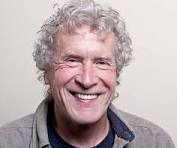“The more things change, the more they remain the same” is a classic French proverb that dates back to the 1800s, but it also applies to the pessimistic financial projections for many Americans.
Projecting Americans’ financial security into the future is one of the oldest stories in financial journalism and the investment industry.
Every year, the financial media, think tanks, financial PR firms, and investment companies continue to analyze new numbers and perform demographic analysis to rehash the same story for years. The inevitable conclusion is that for Americans of all age groups to retire with a modicum of financial security, they have to save more, be disciplined, manage their risk tolerances, and take an interest in how their 401(k) investments are allocated.
This is the old story, and it never seems to change.
Take the latest report (Jan. 18, 2024) from Bankrate, which found that “nearly 2 in 5 (38%) Generation Zers and millennials (or those between the ages of 18 and 43) believe they have a more challenging time building financial wealth than their parents did at their age due to the economy, a new Bankrate survey found. Less than half as many (17%) feel they have it more manageable.
“Every generation is likelier to think they’ve had it worse. Regarding Gen Xers and baby boomers, just 11% of those between the ages of 44 and 78 feel they’ve had an easier time growing wealth than their parents because of the economy. About a quarter (24%) of Gen X and baby boomers think they had it harder.’
This welcomes new data, but the conclusion is not new; it is decades old, myopic, and has become a cliché. And that’s the problem.
This is best summarized by an executive at Bankrate who offered this advice in January 2024:
“Discipline and good financial habits facilitate the investments that today may be in modest amounts but, with the benefit of time, will compound into greater future wealth.”
This information is 100% true, but it’s corporate boilerplate, stale, and doesn’t have the solution to building wealth. It does not come close to solving the problem of building wealth. It alone will not get Americans to where they want to be in retirement or live a financially secure life in the decades before retirement.
Financial Advice Must Become Political to Be Useful
As a financial reporter since the 1970s, I have seen written, re-written, and reported on scores of these reports that show the younger generation is ill-prepared, anxious, or has abandoned any hope of either retiring or being financially secure in retirement.
During the 40 or so years I have been writing about retirement and investing, I have never seen or written a story or seen a severe report that says Americans as a whole will have a financially secure retirement.
Accompanying these sentiments have been projections estimating how much people will have to save in retirement. A decade ago, it was $1 million for a couple; a few years ago, it was $3 million. The numbers mean nothing because, for most people, they are unattainable, and the number continues to get larger. As the cost of owning a home and saving for a down payment becomes more unaffordable, people lose their main wealth creation engine, home ownership.
Similarly, student debt drags down millennials who face the burden of paying for a college education that failed to deliver good-paying jobs. Then, there is the all-important wealth gap that perverts market forces and puts a disproportionate amount of power into rich people who have anti-democratic tendencies. This wealth gap is connected to the political power gap, which we see in policy and Supreme Court decisions that most Americans do not favor.
The basic format of these sad assessments of Americans’ financial futures is that people need to save more, they should start saving at a younger age, and they acknowledge that inflation is a danger. Advisors correctly say that younger people can afford to take more risks than older people and that investment diligence can save the day.
Americans on the Payroll Rat Treadmill
Mainstream, unimaginative, myopic, popular financial advisors, such as Suze Orman, stress the basics of Financial Planning 101 but never answer the more significant problems facing all Americans regarding their economic future. For instance, Orman never advises her audience to ask for a raise, address the wealth gap, get motivated to close tax loopholes, push for universal health care, or form a union. She is too conservative and mainstream, and if she did become political, it would harm her ability to be on mainstream financial media.
This becomes a larger problem because, based on years of international tests, Americans rank very low in financial and political literacy.
- According to Ramsey’s 2023 report, The Financial Literacy Crisis in America, 88% of U.S. adults said high school did not leave them “fully prepared” to handle money in the real world.
- 3 in 4 U.S. adults said in the years after high school, they “often” (32%) or “sometimes” (42%) felt stress because of money.
- 72% of U.S. adults said they would be “further ahead with their money today if they had a personal finance class in high school.”
- Only 17% of U.S. adults took a high school personal finance class.
Political or civic literacy is also in crisis at the federal and state levels. A report from the Annenberg Public Policy Center found that fewer than half of the U.S. adult population can name the three primary branches of government. At the state level, professors Jennifer Bachner and Benjamin Ginsberg, professor of political science at Johns Hopkins, surveyed 1,500 people in the United States this fall. They found that:
- Most respondents didn’t know if being a state legislator was a full-time job.
- Nearly a third of respondents didn’t know which state officials they voted for beyond governor, lieutenant governor, and legislature members. (Depending on the state, other elected officials might include the state attorney general, comptroller, treasurer, agriculture commissioner, land commissioner, and more)
- Most people surveyed did not know whether the chief judge of the state’s highest court was elected or appointed.
- More than half didn’t know if their state had a constitution
- About half couldn’t say if their state had a one- or two-house legislature
- More than half didn’t understand who came up with the boundaries of legislative districts
- About 25% didn’t know who ran the elections
Political and Financial Illiteracy: A Toxic Combination for A Democracy
These two snapshots of political and financial illiteracy partially explain why Americans cannot save for retirement or any significant, long-term financial goals and why they are victims of propaganda from sinister politicians and media outlets (social and broadcast).
What’s missing is more context to describe and resolve these problems. Gen X, Gen Y, and all adult Americans cannot advance because of the macroeconomic environment, riddled by income inequality, poor representation in state and federal legislatures, and unregulated capitalism.
This includes the constant attack on regulations and all social safety nets, the dominance of politicians with lifelong tenure, and a system that makes people into perpetual consumers who consider themselves financially successful if they can only meet the interest payments on their credit card debts. Americans have become victims to the same economic system that governs the lives of millions of people in less developed nations.
Yes, Americans have better entertainment, living, social, and more freedom than people in developing nations, but the same principles are being applied here but with silk gloves. This raises the question of whether some elements of unregulated or poorly regulated corporations have begun to treat fellow Americans as wage slaves who could be in perpetual debt.
Is the International Bank Model Being Applied to Americans?
The International Bank and the International Monetary Fund have been criticized for failing to address climate change, the COVID outbreak, and its long-standing lending and exploitive practices to developing nations.
On the international level, influential financial institutions, such as the World Bank and the International Monetary Fund, dictate the economic future of entire countries, often to the detriment of the local population. This is especially evident in developing nations that have been forced to enact privatization, deregulation, and free trade policies.
It’s why the “activist group Fight Inequality found the international financial institutions “guilty of fueling inequality by colluding with the financial sector and powerful multinational corporations.
The group said they “pursue an economic model that is entirely flawed and favours political and financial elites” and called on them to “stop working for the richest and start performing for the rest,” according to a report in Barrons.

In this video, John Perkins, author of “Confession of An Economic Hitman,” explains the dangers of predatory capitalism. (For a more extended version of this talk on CSPAN, follow this link.)
Here is what Americans face today:
- Nearly four out of every five U.S. workers live paycheck to paycheck.
- Over a quarter never save any money from month to month.
- Almost 75% are in some form of debt, and most assume they always will be in perpetual debt. This has created a form of wage slavery. In the earlier report from Bankrate, “53% of Gen Z workers also said they have a side hustle—more than any other generation—to help cover their monthly expenses.”
So, what do all these interpretations about the financial problems Americans of all generations face?
The best interpretation is that because Americans have been encountering financial challenges for decades, the most commonly offered advice about saving for the future will not solve the problem.
The financial media, investment companies, and some financial advisors are doing investors a disservice by offering myopic and ineffective advice.
The answer to America’s financial solvency is to address political and wealth inequality, such as the wealth gap and a twisted tax policy. However, this will require a significant rethinking by the financial industry. Only when financial advice becomes more political will Americans get a glimmer of hope for a better economic future.











